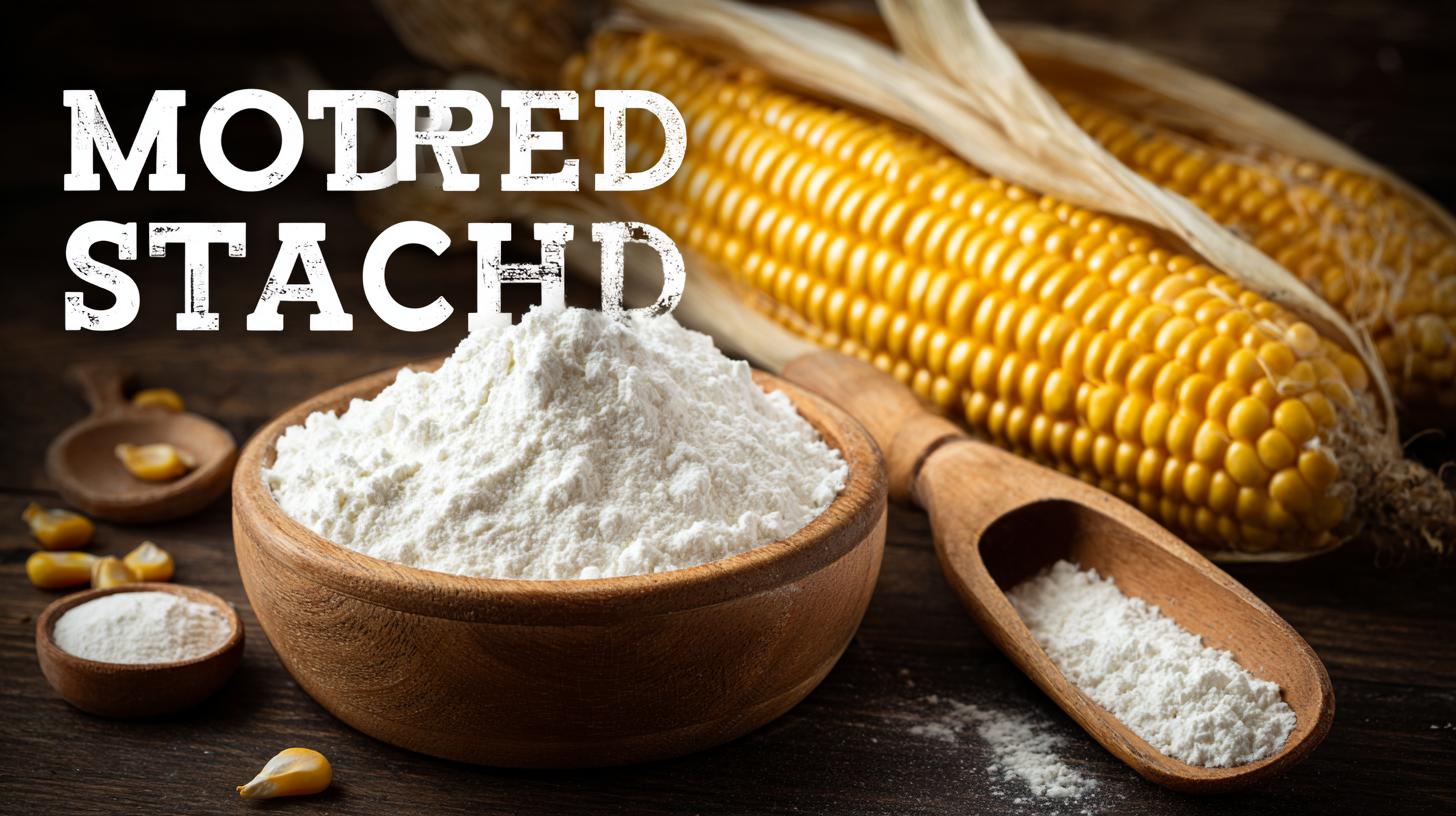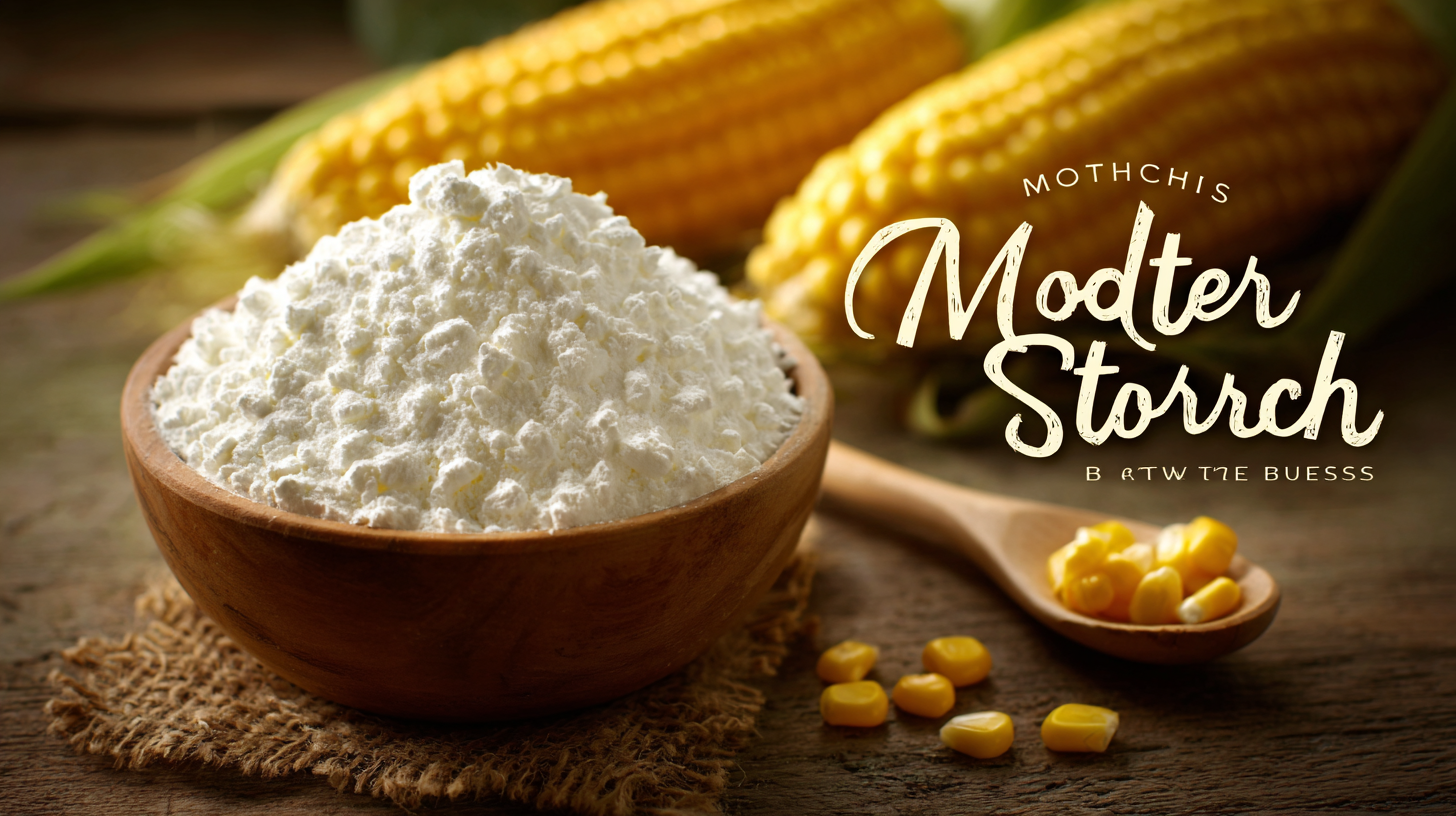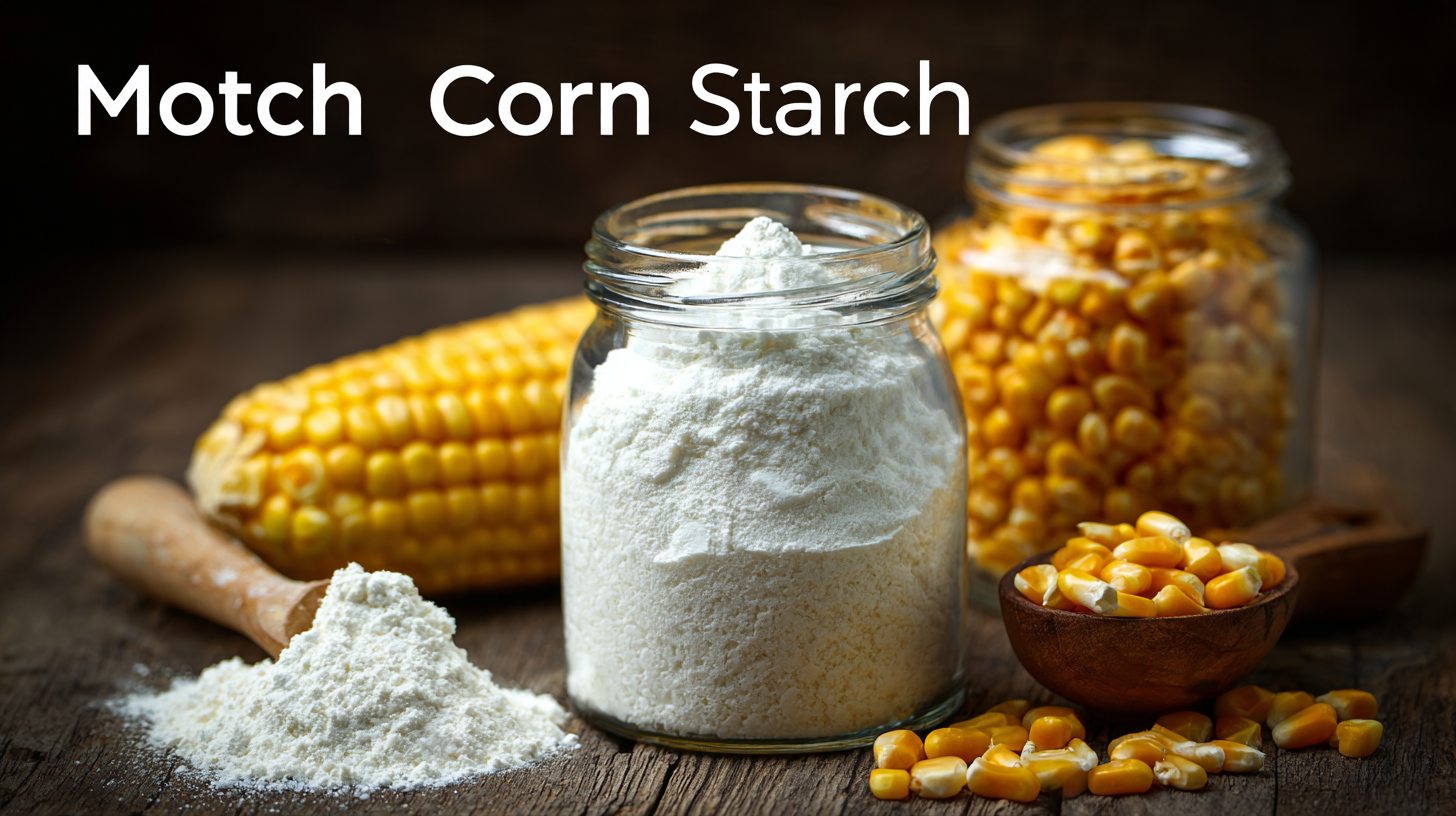
How to Choose the Best Modified Corn Starch for Your Business Needs
In the ever-evolving landscape of the food and industrial sectors, Modified Corn Starch has emerged as a versatile and essential ingredient, crucial for enhancing product performance and stability. According to recent industry reports, the global modified starch market is projected to reach USD 10.4 billion by 2026, driven by increasing demand across food, pharmaceuticals, and other applications. Selecting the best Modified Corn Starch for your business needs requires a thorough understanding of its various types, functional properties, and the specific requirements of your products. With its ability to improve texture, enhance shelf life, and provide a range of functionalities from thickening to stabilizing, making an informed choice is vital for staying competitive in your market. This blog presents a comprehensive checklist designed to guide you through the selection process, ensuring you find the ideal Modified Corn Starch tailored to your unique needs.

Identifying Your Business Requirements for Modified Corn Starch
When selecting the best modified corn starch for your business, it’s crucial to begin with a clear understanding of your specific needs. The global modified starch market has shown impressive growth, valued at $13.7 billion in 2022 and projected to reach $15.9 billion by 2027, reflecting a compound annual growth rate (CAGR) of 3.1%. This growth indicates a rising demand for tailored starch solutions across various applications, including food production, where functionality is key.

Identifying the appropriate type of modified corn starch involves evaluating its intended application, such as whether it will be used to provide viscosity control or enhance the structure of baked goods. For instance, starch can be pivotal in retaining volume while ensuring homogenous inclusions, making it an essential ingredient in many formulations. Additionally, businesses should consider labeling requirements, such as seeking out options with ‘Non-GMO’ seals to appeal to health-conscious consumers. With these factors in mind, companies can better align their starch selections with market trends and customer preferences, ultimately supporting their operational success.
Key Characteristics of High-Quality Modified Corn Starch
When selecting the best modified corn starch for your business needs, understanding its key characteristics is essential. High-quality modified corn starch should possess excellent thickening and stabilizing properties, which are crucial in food applications. Recent industry insights indicate that the global modified starch market is expected to grow significantly, with a compound annual growth rate (CAGR) of nearly 5% projected between 2023 and 2028. This growth is largely driven by the increasing demand for convenience foods, which require modified starches to achieve desirable textures and shelf stability.
Another important characteristic to consider is the source of the modified corn starch. The latest advancements in starch processing techniques reveal that natural starches can be significantly enhanced, offering better solubility and functionality. For example, a breakthrough by research institutions has shown how corn starch can be effectively transformed for use in various applications, including personal care products like hand sanitizers. This versatility not only broadens the application range of modified corn starch but also aligns with the growing clean-label trend in the food and cosmetic industries, making it an attractive option for businesses aiming for innovation in product development.
How to Choose the Best Modified Corn Starch for Your Business Needs - Key Characteristics of High-Quality Modified Corn Starch
| Characteristic | Description | Importance |
|---|---|---|
| Viscosity | The thickness and flow properties of the starch solution. | Critical for texture and stability in food applications. |
| Gel Strength | The ability of the starch to form a gel under heat. | Essential for custards, desserts, and sauces. |
| pH Stability | Resistance to changes in acidity or alkalinity. | Important for products that undergo processing. |
| Temperature Tolerance | Ability to perform under high-temperature conditions. | Critical for baking and cooking processes. |
| Moisture Absorption | Capacity to retain moisture over time. | Affects shelf life and texture of final products. |
| Flavor Release | Influence on how flavors are released in food products. | Enhances in-mouth experience for consumers. |
Researching and Evaluating Potential Suppliers
When selecting the best modified corn starch for your business needs, researching and evaluating potential suppliers is a critical step. Start by identifying suppliers that specialize in modified starch products. Look for companies with a solid reputation in the industry, which can often be gauged through online reviews, industry forums, and recommendations from peers. Consider the supplier's history, the range of products they offer, and their commitment to quality standards. A well-established supplier should have certifications that ensure their products meet safety and regulatory requirements.
Next, engage with potential suppliers to assess their capabilities and responsiveness. Request samples of the modified corn starch they offer and conduct your own tests to determine performance in your specific applications. It's also important to evaluate their customer service and support. Ask about their delivery times, order volumes, and whether they can accommodate custom formulations or packaging. A reliable supplier should not only provide high-quality products but also demonstrate a willingness to partner with you in addressing your unique business challenges.
Understanding Certifications and Quality Standards
When selecting modified corn starch for your business, understanding certifications and quality standards is crucial. Certifications serve as a benchmark, ensuring that the product meets specific safety and quality requirements. Look for certifications such as ISO, FDA, or Non-GMO Project Verified, which signify that the starch adheres to high standards of production and environmental responsibility. These certifications not only guarantee product quality but can also enhance your brand’s credibility in the market.
Moreover, quality standards can vary based on the application of the modified corn starch. It’s essential to consider the specific needs of your formulations—whether it’s for food, cosmetics, or industrial applications. For instance, food-grade modified starch must comply with food safety regulations, while industrial starch may focus more on performance attributes like viscosity and stability. By understanding these standards, businesses can make informed decisions that align with their product goals, ultimately leading to enhanced efficiency and consumer satisfaction.
Modified Corn Starch Quality Standards
This chart illustrates the different quality standards of modified corn starch based on certifications and source types. The data highlights the importance of selecting the right starch based on quality and certifications for business needs.
Building Strong Relationships with Your Chosen Supplier
Building a strong relationship with your modified corn starch supplier is crucial for the success of your business. A reliable supplier not only provides quality products but also supports your growth through collaboration. Start by engaging in open communication. Schedule regular check-ins to discuss your needs, share feedback on their products, and address any concerns. This ongoing dialogue helps to align your goals and ensures that you receive timely updates on product availability and any changes in formulations.
Additionally, understanding your supplier's manufacturing processes can enhance your partnership. When you have insight into their operations, you can better appreciate the challenges they face and how they can best serve your needs. Consider visiting their facilities or participating in product training sessions. This not only solidifies trust but also enables you to make informed decisions regarding your product selection.
Lastly, show appreciation for your supplier’s efforts. Whether it’s through prompt payments or recognizing their milestones, these gestures can strengthen your relationship. Acknowledging their contributions fosters loyalty and can lead to more favorable terms or priority service in the future. Building strong relationships with your supplier is an investment that pays dividends for your business in the long term.

